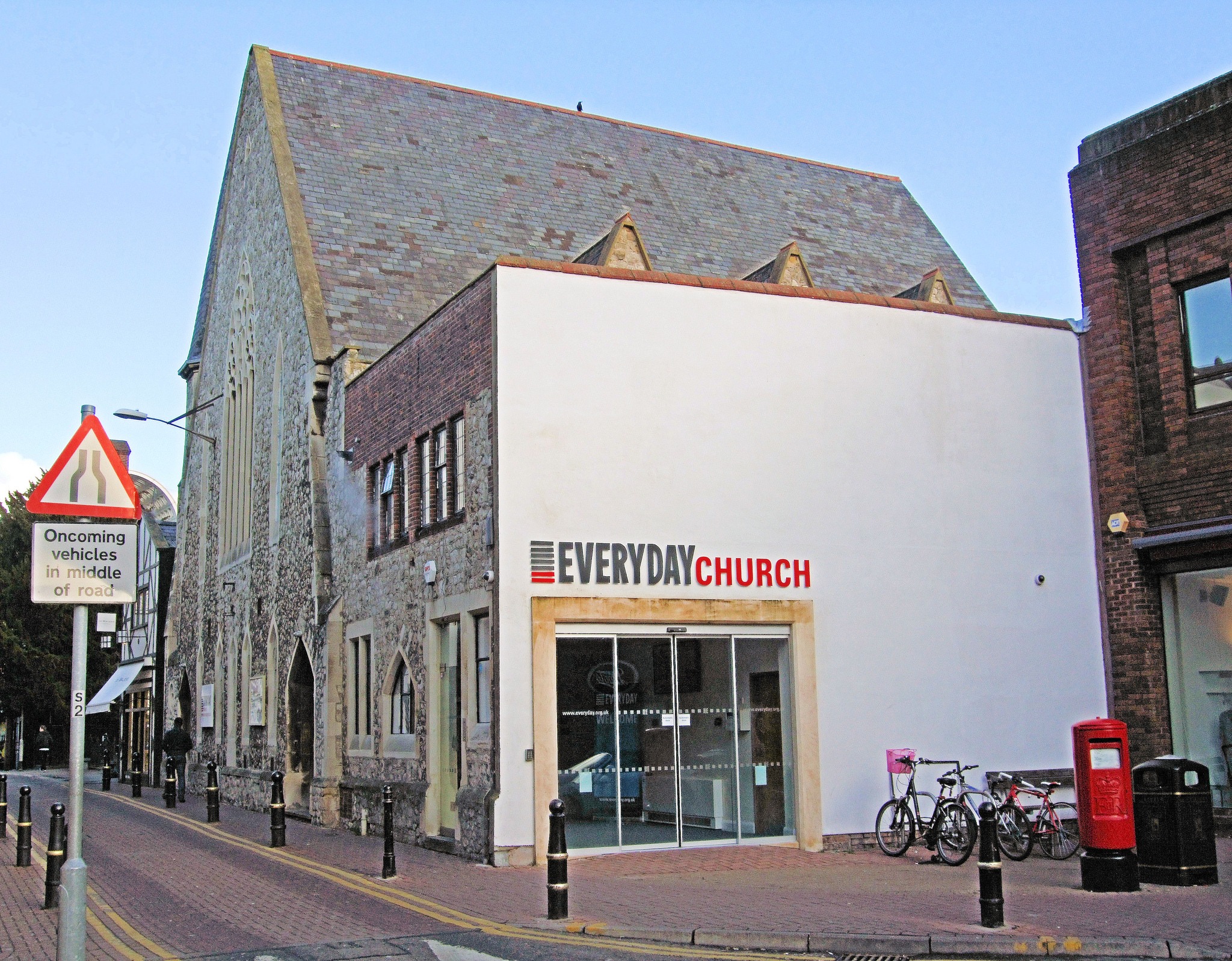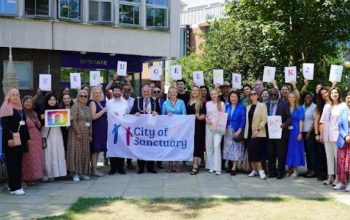Film depictions of food banks are often depressing. They are too frequently limited to lines of people serving and receiving food, exchanging the same expressionless, tired looks over barely edible food.
Kingston’s food bank at The Everyday Church could not be more different. Instead of mournful faces and mechanical servers, it boasts vivacious volunteers who embrace everyone with a smile, a hot drink and the offer of a proper shower.
Tall and with a ready smile, Steve Millington, who has used the food bank for several years, praised the staff for their unwavering dedication and caring natures.
“This isn’t just a place to get some food every Tuesday and Friday. The staff here they integrate and they listen to what you have to say and they understand the problems you face.”
He describes their commitment with fervour, remembering one instance where Sally Butler, a food bank volunteer, picked him up after a stint in prison to ensure he had somewhere to stay afterwards.
Alongside life support, the food bank provides three days worth of food to those eligible for vouchers from local agencies, like the job centre. In 2015, the Kingston food bank network provided 5,712 people with three days of emergency food.
Although many think it is just the homeless and the unemployed who need help, Paul Pickhaver, Kingston food bank project manager, emphasised that anyone can end up requiring help.
He said: “Fifty per cent of the adult population don’t have savings, which is even more so in an area like Kingston. If you ask someone how long they could go if they lost their job the answer for most will be barely a month.
“People lose their job, go onto benefits while they look for a job and discover it’s not as easy as the media makes it look and they end up at the food bank.”
Sue Milsome, a long-time food bank volunteer, echoed the sentiment saying, “in reality most people spend up to their limit”, which is why the food bank tries to function as “crisis intervention”.
As zero hour contracts and welfare cuts take their toll on people’s income, more and more people need support from food banks. In 2014-15, 1,084604 people were given emergency food and support and 13 million people live below the poverty line in the UK, according to Trussel Trust figures.
But Kingston’s food bank does not have the staff it needs to meet the increasing demand. Christine Steer, who has volunteered at the food bank since it opened in 2011, said: “When we started out we would work with two volunteers to a client, which is the ideal, but now that we’re so busy and we have such a small space it’s just not feasible.”
On an average day, the food bank can serve between 20 and 35 people in a three-hour slot, providing them with emergency food supplies in proportion to their familial needs. In spite of the hard work Steer has no regrets, she said: “For me it’s definitely what god wanted me to do. I’m quite sure of that now.”
Kingston’s food bank is not alone in its struggle to maintain the food bank. According to a report by the Independent, Britain’s busiest food bank, Newcastle West End food bank, is on the brink of shutting due to a funding crisis stemming from Whitehall decisions.
Even though food banks have become a necessity for some, users are often reluctant to come in. Pickhaver said: “Food is a basic need and people think ‘I should be able to meet that need’. Not being able to provide for your family makes you feel bad about yourself. So to walk into a place and ask for help with food, that shame then becomes public.”
However, after people visit the first time, Pickhaver said there is always a ‘huge transformation’.
He explained: “They say they didn’t feel judged, everyone was so lovely.”
You’ve got this piece of paper that says you get help here, you’re not invisible, it’s not that you don’t matter here, there’s time to listen and you can talk about whatever you want.”
The support provided by the food bank continues to develop and it now offers FuelBank in partnership with N Power. The scheme gives £49 to recipients to help pay gas and electricity bills when they are struggling to fill holes in their income.
Pickhaver cited one mother who was finally able to buy her children proper pyjamas – for the first time in their lives – after FuelBank covered her power costs, which allowed her to spend other funds on rewarding her children.
He said: “It didn’t just give her children an item of clothing it made her feel like a great mum.”
Across the country, 400 other food banks seeded by The Trussel Trust replicate Kingston’s efforts to help struggling people survive. The Trust’s help comes in the form of food, power and emotional support from each volunteer.
Millington, who was adopted at five years old, credits the food bank and its volunteers with rebuilding trust between him and the community. As a recovering alcoholic, he attributes being trusted to help out at the food bank when it still held alcohol with giving him the drive to move forward and make a positive change.
He said: “Through here, through those days on the street, just being able to get here, have a shower, have something hot to drink, they gave me hope in a very desperate period of my life.”
Kingston food bank operates twice a week on Tuesday and Friday between 11am and 2pm at the Everyday Church on Union Street.
Other nearby food banks are hosted locally at:
- The Kings Centre in Chessington on Wednesday between 9am and 11am.
- Surbiton New Life Baptist Church on Monday between 5:30pm and 7:30pm.
- New Malden Baptist Church on Thursday between 10am and 12:30pm.





